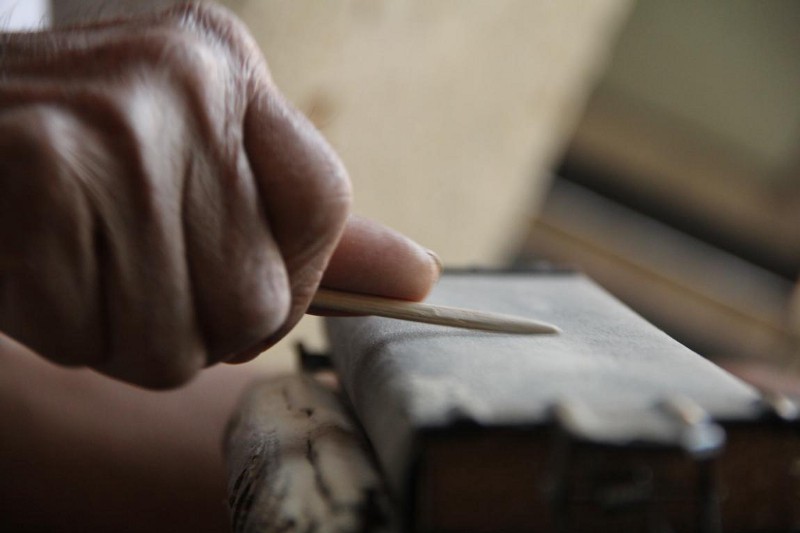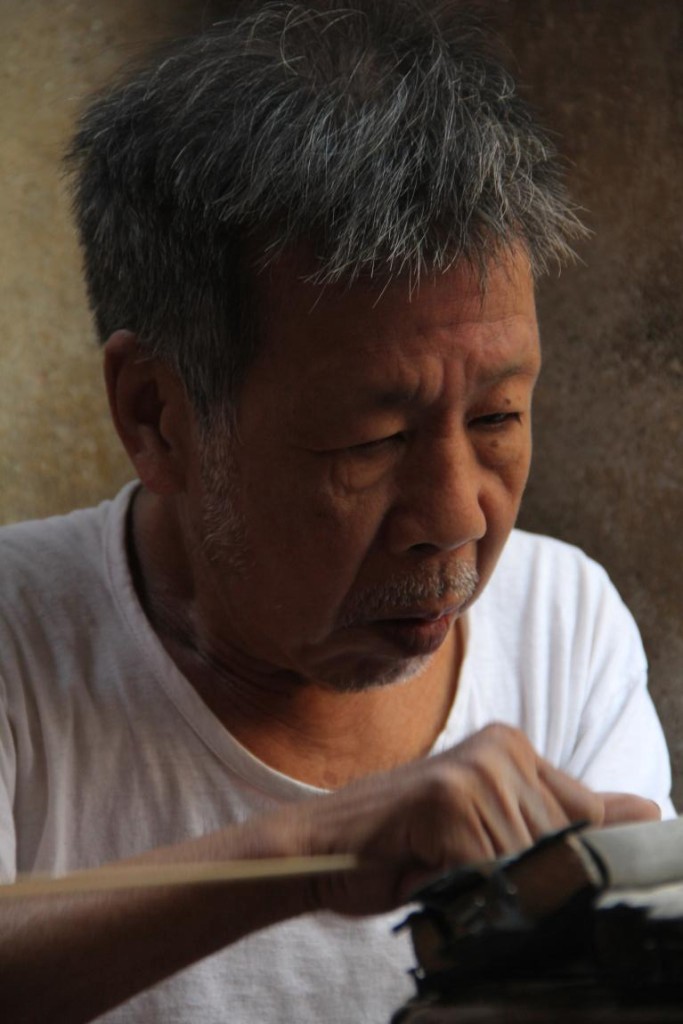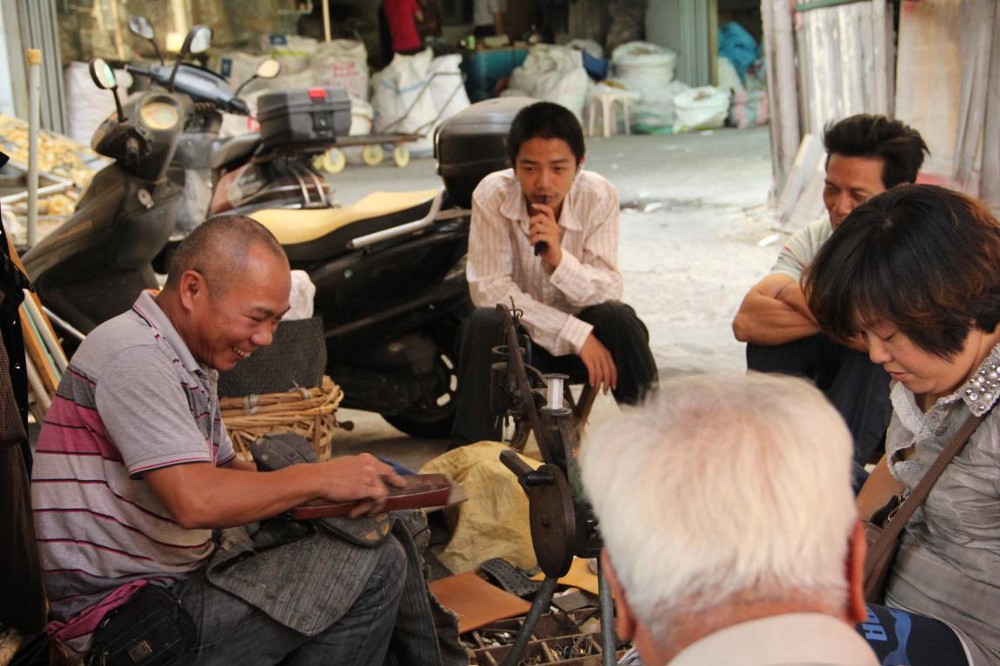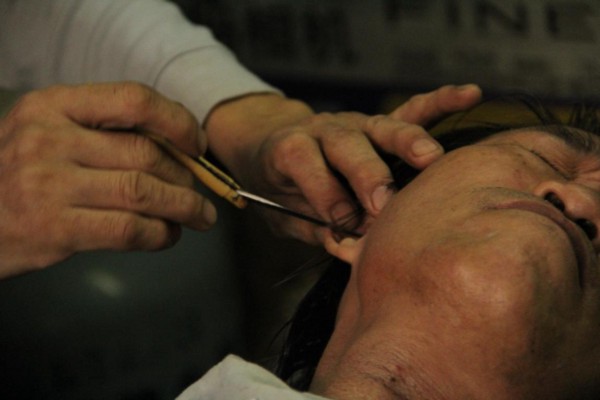The Craftsmen of Xiao Gong Yuan (Little Garden)
Written by Chair. Photos by Winner
Xiaogongyuan (小公园), the “Little Park”, built in 1930s, is an important cultural and historical area of Shantou. The district had a seven-floor department store, more than 100 stores, and several foreign consulates in its heyday. The prosperous place also attracted many craftsmen to make a living there; it was full of artisans and hands-on laborers in the past — those who mend umbrellas, shoes, razors and many others. As time went by Xiaogongyuan became more and more decrepit.
Renovation plans for the area have fallen into a start-stop-restart cycle in the last decade due to insufficient funds from investors. Nowadays, more and more old vocations are vanishing as Shantou modernizes. Perhaps the craftsmen pictured here will be the last people to practice their craftsmanship in traditional ways on the “Little Park” street corners.


At a corner in the area, 17 Minzu Street, Gao Banxiong, a 69-year-old-man, is making needles for knitting. He previously worked in a soy sauce factory. Making needles is a second career for him. He earns about 500 RMB, roughly $80 U.S., per month from it.
The needles are made from bamboo. Gao uses a machine to cut bamboo into bamboo sticks at home. Then he takes a last step — putting the stick on sand paper, rubbing it for 30 seconds, which makes the top of the stick thin enough for knitting. He has sanded needles for 46 years since he began helping his father with his needle business in 1968.
Aunt Huang is a regular at Gao’s needle sharpening shop. She often takes the bus to Xiaogongyuan just for his needles. She buys needles to knit clothes for her grandchildren. “His needles are smoother than the machine-made needles, which makes knitting smoother,” she says.
Now, few people continue this practice because it earns so little and demand is slight. Gao’s children do not want to pursue their father’s craft. “I have nothing to do but making needles. I enjoy it and I want to keep doing this until I die,” he says, laughing.

There is a stall on Wansheng Street, busy and lively. Many people go there, most of them are regulars. Ji Yanxian is a 52-year-old cobbler and his daily life is mending shoes, drinking tea with friends, talking and joking. His grandfather, father, uncles, and brothers used to be cobblers. But he is now the last remaining cobbler in his family.
Ji has been a cobbler for 38 years since he was 14 years old. He is confident in his skill, low price and high speed. “Only if the shoes you mend are done well will your customers trust you,” he says.


Uncle Zhang is a 66-year-old barber with 55 years of experience who works in his home. An old mirror, an old chair, and some old tools are like old friends. He has used these to make money for many years, he says.
A few of his old customers still come here now. “I have got my haircut here for over 10 years and I trust Zhang,” a customer says.
As the “Little Park” literally crumbles around them, these traditional craftsmen continue their hands-on work — as long as their hands will let them.

